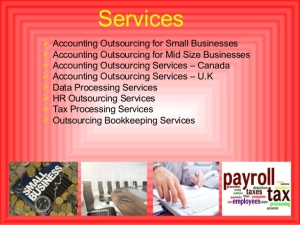
Posting in bookkeeping is the point at which the parities in subledger and the general diary are moved into the general record. Posting just exchanges the aggregate parity in a subledger into the general record, not the individual exchanges in the subledger. A bookkeeping supervisor may choose to take part in posting generally rarely, for example, once per month, or maybe as habitually as once every day.
Subledgers are just utilized when there is an expansive volume of exchange action in a specific bookkeeping territory, for example, stock, creditor liabilities, or deals. In this way, presenting just applies on these bigger volume circumstances. For low-volume exchange circumstances, passages are made straightforwardly into the general record, so there are no subledgers and consequently no requirement for posting.
For instance, ABC International issues 20 solicitations to its clients over a one-week time frame, for which the sums in the business subledger are for offers of $300,000. ABC’s controller makes a presenting section on move the aggregate of these deals into the general record with a $300,000 charge to the records receivable record and a $300,000 credit to the income account.
Posting is likewise utilized when a guardian organization keeps up discrete arrangements of books for each of its auxiliary organizations. For this situation, the bookkeeping records for every backup are basically the same as subledgers, so the record aggregates from the auxiliaries are posted into those of the guardian organization. This may likewise be taken care of on a different spreadsheet through a manual solidification process.
Posting has been wiped out in some bookkeeping frameworks, where subledgers are not utilized. Rather, all data is straightforwardly put away in the records recorded in the general record.
At the point when posting is utilized, somebody investigating data in the general record must “bore down” from the record aggregates posted into the significant general record records, and pursuit in the definite records recorded in the important subledgers. This can involve a lot of extra research work.
From the point of view of shutting the books, posting is one of the key procedural strides required before monetary articulations can be made. In this procedure, all conforming passages to the different subledgers and general diary must be made, after which their substance are presented on the general record. It is standard now to set a lock-out banner in the bookkeeping programming, so that no extra changes to the subledgers and diaries can be made for the bookkeeping time frame being shut. Access to the subledgers and diaries is then opened for the following bookkeeping time frame.
On the off chance that posting coincidentally does not happen as a major aspect of the end procedure, the aggregates in the general record won’t be precise, nor will the budgetary articulations that are arranged from the general record.
Diary is only an ordered record of all business exchanges. Yet, in the event that we need to know the net impact of different exchanges influencing a thing, we have to experience the entire diary. It requires investment. You realize that time is cash in business.
Accordingly, to conquer this trouble, we keep up another book called “Record.”
Record is a book which contains, in an outlined and characterized structure, a complete record of all exchanges. Since it contains complete data about different exchanges, it is known as the ‘Important Book’. Last records of a business are set up on the premise of record.
Rules for Posting into Ledger:
Posting into record is produced using diary sections went in the diary. Mention that each diary passage will must be posted into all records which have been charged and credited in the diary section. Backtracking to Illustration I, for products obtained for money. Buys Account is charged and Cash Account is credited. While posting this section into record, it will be posted both in Purchase Account and also in Cash Account.
Posting will be made on charge side of the record which has been charged in the diary section and, likewise, using a credit card side of the record which has been credited in the diary, passage. Keep in mind, the postings into record will be made in sequential way (date-wise).
In the specific section, the name of the record (went before by ‘To’) credited in the diary passage will be composed. Thus, while posting on the credit side of the record, we should compose the name of the record (went before ‘By’) charged in the diary passage.
The measure of diary passage will be appeared in the sum sections of both records lastly records will be adjusted.


 There are following tips from
There are following tips from 




